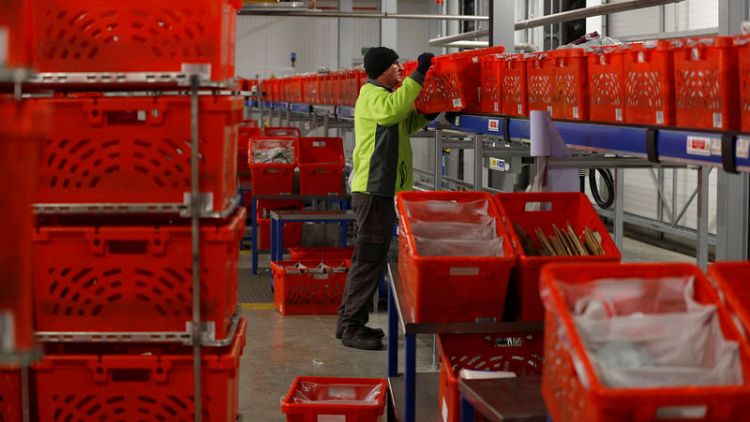LONDON (Reuters) - Temporary staff in Britain had their biggest pay rises in more than a decade last month as the approach of Brexit made workers wary about changing jobs, leaving employers scrambling to fill positions, a survey of recruiters showed on Friday.
Pay for temporary staff employed via recruitment agencies grew by the most since the eve of the financial crisis in July 2007, while starting salaries for permanent staff rose at one of the fastest rates in nearly four years.
Sectors such as hospitality and warehousing struggled to fill their vacancies in the run-up to Christmas, the Recruitment and Employment Confederation (REC) said.
The number of permanent and temporary staff being hired grew at the slowest rate since the summer, though in outright terms demand remained strong.
"It's very much a candidate's market at the moment and demand for workers is driving a sharp increase in starting salaries," said James Stewart, vice chair of accountants KPMG, who sponsor the survey.
As fears of a no-deal Brexit spark concerns about job security, fewer people are willing to risk changing jobs.
"Candidates who are prepared to take a chance and job hop can often bag a pay rise as a result," Stewart said.
Companies have complained of fewer foreign workers coming to Britain in the run-up to Brexit and official figures have shown the lowest net immigration from the European Union since 2012.
Past REC data showing stronger growth in starting salaries and temporary wages has not always translated into stronger earnings across the British workforce as a whole.
However, the most recent official data for average weekly earnings, excluding bonuses, for full-time employees showed the sharpest annual growth in almost a decade, with wages up 3.2 percent on the year in the three months to the end of September.
The Bank of England has said it expects to raise interest rates gradually as wages rise, generating inflation pressure.
(Reporting by Amy O'Brien; Editing by David Milliken and William Schomberg)



